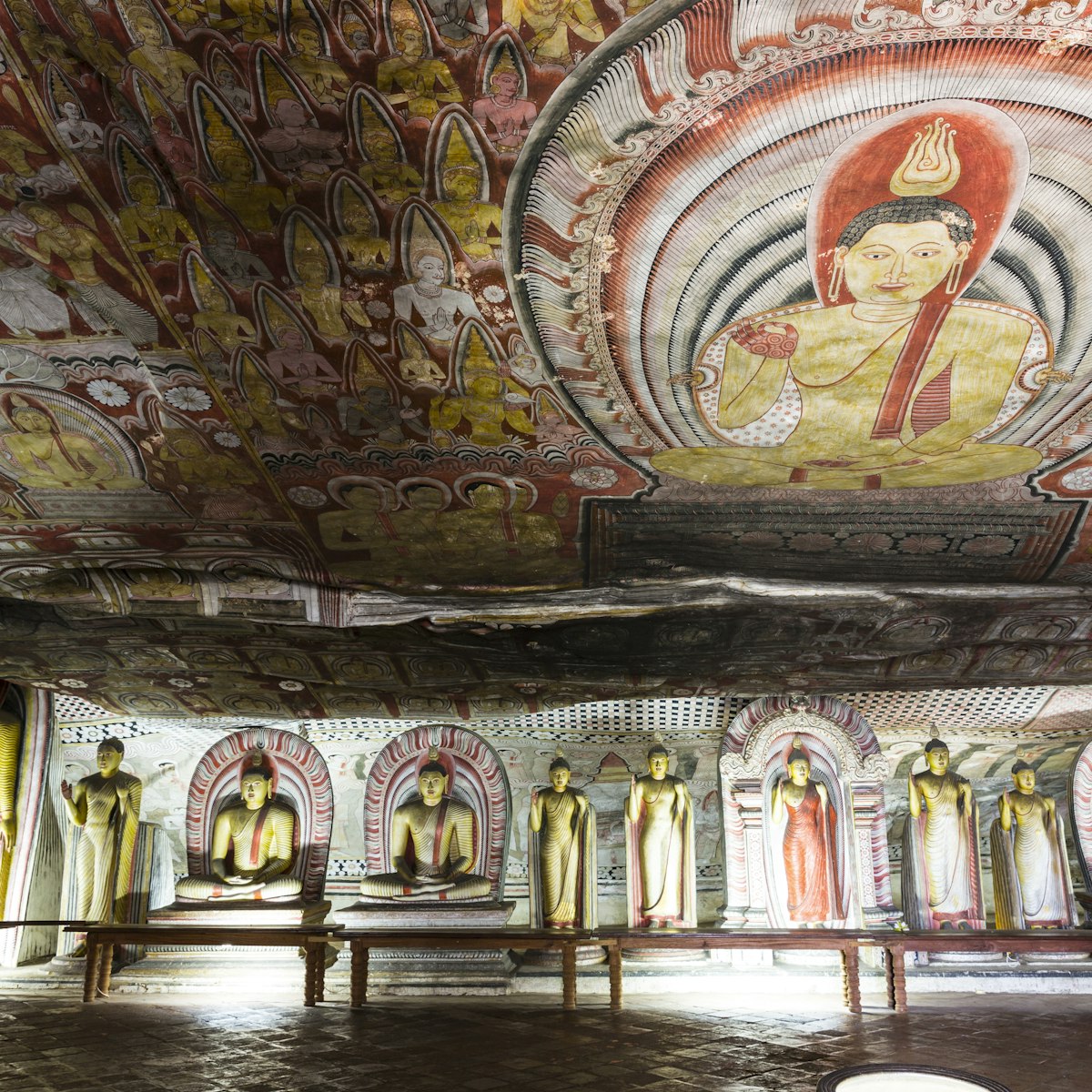According to legend, the magnificent 12m-high standing Aukana Buddha was sculpted during the reign of Dhatusena in the 5th century, though some sources date it to the 12th or 13th century. Aukana means ‘sun-eating’, and dawn – when the first of the sun's rays light up the huge statue’s finely carved features – is the best time to see it.
Note that although the statue is still narrowly joined at the back to the rock face it is cut from, the lotus plinth on which it stands is a separate piece. The Buddha’s pose, ashiva mudra, signifies blessings, while the burst of fire above his head represents the power of total enlightenment.
Don't miss the lily-filled rock-cut pond behind the white stupa at the edge of the site.
You’ll need long trousers or a sarong to visit the statue; the ticket office is at the top of the first set of steep steps. A couple of vendors sell drinks near the parking area.
The statue is 800m from the village of Aukana. Buses between Dambulla and Anuradhapura stop at the junction town of Kekirawa (Rs 30, 30 minutes, every 30 minutes), from where there are local buses every 30 minutes for the 19km to Aukana (Rs 40, No 548). A three-wheeler from Kekirawa to Aukana is Rs 900 with waiting time.
Aukana is on the Colombo to Trincomalee rail line, but only four daily trains stop here: the station is 1km from the statue.







